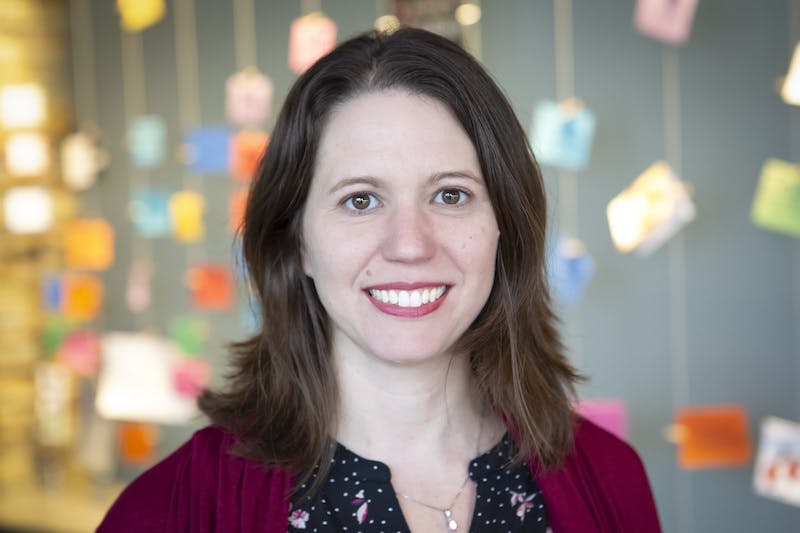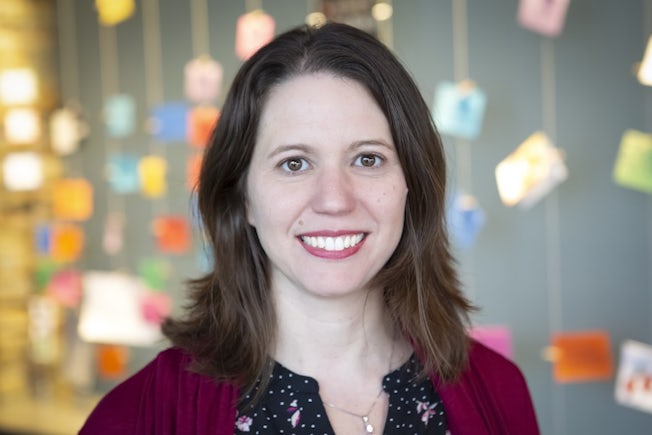Deanna Ballew is the Chief Innovation Officer of the DAM and PIM software provider, Widen. We caught up with Deanna to find out her approach to working from home, plus her tips for marketers.
Please describe your job: What do you do?
I am the Chief Innovation Officer at Widen, a provider of enterprise digital asset management (DAM) and product information management (PIM) solutions. My job is to oversee Widen’s research and development (R&D) activities, and ensure we are innovating our core business as well as exploring new opportunities for emerging business. Our R&D teams are focused on solving our customer problems and delivering value through Widen’s solutions, with agile practices and user centred design frameworks.
For Widen, every problem is an opportunity for innovation: whether it is innovation for our current DAM and PIM solutions, or innovation for a new market. Innovation happens when we can change the way someone works with our software, and for me, that means looking for problems that we can solve where people are ready to make a change, to do things differently, or to fix a pain point.
Talk us through a typical day…
No two days are ever the same. Especially in the area of new product development, the days change based on the phase of the project. For example, during discovery, conceptualisation and implementation, each phase has a different rhythm. In discovery, I’m interviewing customers and carrying out market research. Conceptualising, on the other hand, involves lots of ideation sessions where I use online collaboration tools with my team, and then test those ideas out with users. By the time we are at implementation phase, my focus is back on internal teams, and helping to pull it all together: we check off stories (verify development work is completed as expected), finalise details with partnerships, and make sure internal teams are up to speed on our market positioning.
This approach may seem linear, but often I juggle a couple of projects at different phases so I may move from a user test, into an internal training meeting, and sneak in some market research, all in the same day!
How do you maintain an effective work/life balance?
I like to look at my work as part of my life, rather than outside of my life. Overall, I seek to find enjoyment and satisfaction, which can come from my family and friends, my hobbies, and my work. I find enjoyment in laughter, learning, and new experiences.
But not everything in life can be satisfying. Between getting my kids ready for school and running to appointments, to preparing budget forecasts and dealing with project issues – deciding how to balance everyday life has been my focus as of late. I make it a priority to have me-time, whether that is walking the dog, spin classes, or taking a bath to reflect on my day and disconnect. If my day has been draining, I intentionally seek to balance it with something enjoyable. Like playing board games, picking up a new book to read, enjoying a ‘date night’, or starting a new, exciting project at work. During these times, it is a decision to put the work or family stresses aside and be in that moment. My house may be untidy, and I may still have unopened emails, but they will all still be there tomorrow!
How has strategy changed at your company?
Our strategy at Widen has become more focused in the past year. We have been able to set a path forward that meets the rapid digital transformation needs that our customers have been experiencing, more so during the pandemic. This has created a sense of urgency within our teams that allows us to say ‘no’ to the things that are important, but not urgent right now. This in turns allows us to deliver more value to our customers.
How has customer behaviour (or your clients’ customer behaviour) changed during the pandemic?
Our customer behaviour within our product, regarding usage, has stayed along the same lines. However, our conversations with our customers have changed to highlight more of their needs with ecommerce and digital marketplaces. We now have a PIM solution so we can provide a 360° Product View for our customers to then take across their digital channels.
What do you predict for the future?
For the future, I’ll look towards data and technology. Quality data is critical to today’s society. We are drowning in data within our businesses and in our daily lives. We have learned to mistrust all the data that surrounds us because there is no way to understand its quality.
Today’s technology can aggregate and process this data, but the challenge for us isn’t processing data, it is validating it. Whether this means deep fakes, or utilising data accurately, while we are figuring out how to validate the data, we also have a responsibility to bring transparency to all the data we have. To win back trust in technology with people, transparency is crucial. The days of implicit consent for access to data are behind us and as tech providers, we need to seek out explicit consent for only the data that is necessary for our solutions. In the next few years, I hope to see our society become more data-literate, starting to treat our personal data with more care.
What advice would you give a marketer right now?
My three tips for today’s marketers would be:
1. Find your success from the past year. You have had to pivot all your planned projects, campaigns, and events, and you have most likely had to cut your budget and do more with less. But you did it: you met people where they are at the moment. Now learn from it and do things differently going forward. Next time you are faced with a change, don’t fight it. Instead, use your new agile mindset to work out how you can meet your customers where they are in that moment.
2. Continue to work with tools that enable you and your teams wherever you’re based – whether that’s in the office or at home. The flexibility of working styles will most likely continue for many companies long after the pandemic.
3. Remember the empathy you felt toward your colleagues, customers, and users, and bring that forward, remembering everyone is in a different place. At the core, we are all humans, and we need to remember that in all that we do.








